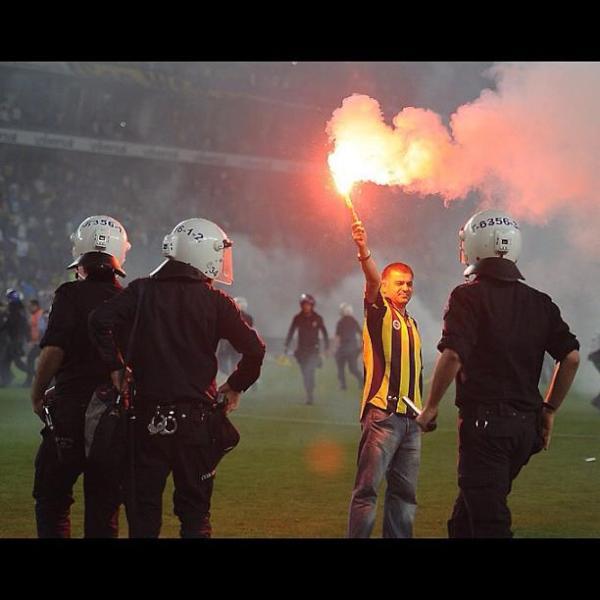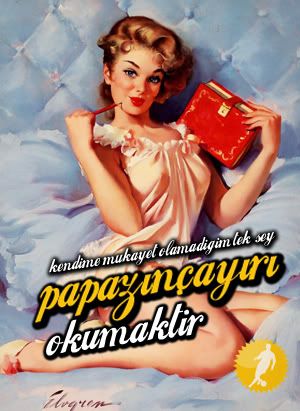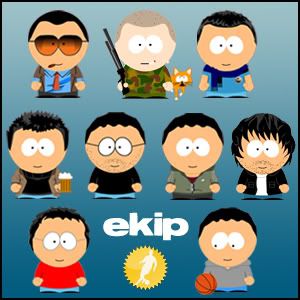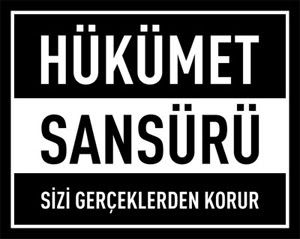The Last Stronghold: The Fenerbahçe Sports Club and Turkish Politics

Football is more than a game, especially in Turkey: the Turkish football league, and the strong collective consciousness among the supporters of its prominent teams, demonstrate this.
Since July 2011, Turkish football has been in crisis. Some of the most important clubs --Fenerbahçe, Beşiktaş, Trabzonspor, Galatasaray and others – have been accused in recent years of influencing the matches with incentive premiums or fixing them entirely. In particular, it is Fenerbahçe, the 2010-2011 season's champion, which has been at the center of the accusations, resulting in the arrest and imprisonment of its president, Aziz Yıldırım. Yıldırım is considered to be among the most powerful and charismatic people in Turkey, a successful businessman owning nine companies spread across a variety of sectors, including construction, defense, maritime business, tourism, cement and stockbreeding. Many argue that the investigation is in fact a political operation to dispense with him.
To understand how politics and football are inseparable in Turkey, we must examine Turkish football history in general, and Fenerbahçe’s history in particular. Football was introduced into Turkish society during the reign of Sultan Abdülhamit II (r. 1876-1909). Despite the Sultan’s ban on football, Turkish football clubs were established and gained popularity.After his deposition from power in 1909, the ban was lifted and the clubs’ activities became transparent. The most popular clubs were and still are: Beşiktaş (est. 1903), which was seen as representing the Palace; Galatasaray (est.1905), widely viewed as the team of the aristocracy; and Fenerbahçe (est. 1907), whose support came from broader sectors of society.
The visit of Mustafa Kemal Atatürk, the founder of modern Turkey, to Fenerbahçe's facilities in Istanbul in 1918 was a milestone for the club. During the war of independence (1919-20), Fenerbahçe's players were recruited to smuggle arms for the Turkish army from Istanbul to Anatolia,. Even the remnants of the Ottoman dynasty had connections with Fenerbahçe at that time . Prince Ömer Faruk Efendi became the honorary president of the club and recruited the players for the Turkish national struggle.
In the years following the war of independence, Fenerbahçe managed to secure its popularity in the country through its successes in the Istanbul municipal league. When the Fenerbahçe Club building burned down in 1932, a public donation campaign was initiated to build a new stadium: Atatürk himself donated 500 Liras to the fund. The intimacy between the state and Fenerbahçe was further highlighted in 1933 when the Minister of Justice (who later became Fenerbahçe’s president (1934-1950) and the country’s prime minister in 1942), Şükrü Saraçoğlu, made it possible for Fenerbahçe to purchase its stadium.
The 1936 Olympics may be remembered as the most politicized athletic gathering of all time. The Turkish Olympic team attended the Games wearing Atatürk's CHP (Cumhuriyet Halk Partisi – “Republican People's Party”) emblem. Later that year, the Turkish Sports Association, the country’s first national sports association, was founded, and formally became part of the CHP.
At the 1936 inauguration of the “Ankara 19th May Stadium”, the largest stadium in the Middle East and the Balkans at the time, Prime Minister İsmet İnönü declared, "Turkish rulers should treat the stadiums as the most precious type of schools."
During the Second World War, Turkish Prime Minister İsmet İnönü employed Fenerbahçe in the service of his diplomatic policy of neutralism: in 1941, Fenerbahçe played against the British Middle East Karma team, as well as Nazi Germany's Admira squad.
During the post- Second World War era, Turkey switched its political system from a single party to multi-party democratic system. In the first multi-party elections, the Demokrat Parti (DP) and its chairman, Adnan Menderes, came to power. All football club presidents were immediately replaced with DP affiliates and Fenerbahçe’s star striker, Zeki Rıza Sporel, was elected to the parliament from the DP list. Following in his predecessors' footsteps, Menderes' administration used Fenerbahçe as a foreign policy instrument to help ameliorate relations with the Soviet Union after its 1956 intervention in Hungary, sending Fenerbahçe to play against a Soviet team.
Subsequent decades saw significant developments for Turkish football. The national league was formed in 1959-60, and thanks to the national radio, football became a major past-time throughout the entire country. The multiple coups d’etat and general instability between 1960-1980 generated a number of changes in the structure of the football clubs. The army was the dominant actor on the pitch to such an extent that on one occasion, a military aircraft was sent to retrieve documents necessary for the transfer of a player to Fenerbahçe. Conversely, during periods of civilian rule, politicians became dominant actors in the football league.
In the 1980's, under Fenerbahçe's legendary president Ali Şen, a new capitalist trend swept Turkish football, and political affiliation became secondary . However, Turkish politicians understood the power of the stadium and began to make appearances at important games. Furthermore, they chose their preferred teams carefully. For example, Prime Minister Mesut Yılmaz expressed his support for Galatasaray in the Turkish league’s championship games. In response, Fenerbahçe fans held a banner that read, "Mr. Yılmaz, we will get even with you in the ballot box."
The end of the era of coalition governments in Turkey came with the election in 2002 of Recep Tayyip Erdoğan, a declared Fenerbahçe supporter, and his AKP (Adalet ve Kalkınma Partisi – Justice and Development Party). Fenerbahçe fans showed their satisfaction with a huge banner reading, "Turkey deserves a prime minister affiliated with Fenerbahçe.”
Like his predecessors, Erdoğan used Fenerbahçe as a diplomatic tool. In April 2007, Turkish-Syrian relations warmed substantially, Erdoğan took Fenerbahçe with him on an official visit to Syria, where the team played against the Syrian Al-Ittihad squad at the grand opening of “Aleppo Olympic Stadium.”
Erdoğan’s successes in the 2010 constitutional referendum and the 2007 and 2011 parliamentary elections marked his steady consolidation of power. Many argue that Erdoğan’s strategy is to systematically eliminate his potential adversaries and critics in different fields such as the press, the arts and sports. Today, many Fenerbahçe fans believe that Erdoğan and the conservative Muslim Fethullah Gülen Movement are trying to gain control of the club (Gülen personally denied this in a recent interview.) In 2006, the Ülkerspor basketball team of the Ülker group, a well known food manufacturer company with ties to the Fethullah Gülen Movement, formed an alliance with Fenerbahçe. Moreover, Ülker, with its investment of $38 million in football and basketball, began to sponsor the Turkish national football team as well as major clubs, including Fenerbahçe. According to its merger accord with Fenerbahçe, Ülker built the Ülker Basketball Arena, which has a capacity of 15,000 spectators, for Fenerbahçe. It is vital to note that until 2002, Erdoğan himself was among the official distributors of Ülker products in Istanbul. After being elected, he transferred his rights to his son Ahmet Burak Erdoğan.
Aziz Yıldırım, who has been Fenerbahçe's president since 1998, has become an icon for Fenerbahçe fans. Yıldırım's numerous projects, including expanding the stadium’s capacity to 55,000 and naming it after Şükrü Saraçoğlu, helped him win the hearts of the fans.
During his trial, Aziz Yıldırım openly accused certain "elements", meaning the Fethullah Gülen Movement and the AKP, of trying "to seize [control of] Turkish football by influencing the state's legislative, executive and judiciary bodies to punish Fenerbahçe's Kemalist stance."
While the verdict is still pending, Yıldırım and the Fenerbahçe board are seeking to mobilize the public through the club’s official web site and TV channel. Fenerbahçe fans have been gathering near the courthouse, and at the May Day parades. Most Fenerbahçe fans blame Erdoğan and the Gülen Movement for the current trial, aruging that it is intended to eliminate Yıldırım, rather than tackle corruption. At the funeral of Fenerbahçe's legendary player of Greek origin, Lefter Küçükandonyadis, Erdoğan was loudly booed by the crowd in Saraçoğlu stadium.
The collective identification of large segments of Turkish society with sports teams, and particularly with Fenerbahçe (37%, according to a 2004 university survey) had no impact on the 2011 election, mainly because Fenerbahçe had not yet been accused of fixing matches, and hence, Yıldırım had not been arrested. His imprisonment led to a dramatic drop in Erdoğan's support among Fenerbahçe fans, highlighting anew the intertwining of sports and politics in Turkey.
Elections for Fenerbahçe's May 20, 2012, leadership indicated that Erdoğan’s determined efforts to take control of the club were producing results. Although Yıldırım was reelected as the chairman of the club, 8 new board members were also chosen, including AKP sympathizers such as Ahmet Ketenci (Erdoğan's relative), İsfendiyar Zülfikari (Erdoğan's close associate), Talat Yılmaz, (a close associate of President Abdullah Gül) and Hüseyin Avni Topbaş (the son of AKP Mayor of İstanbul, Kadir Topbaş. Time will tell whether or not the AKP's new "trojan horses" on the Fenerbahçe board will help the AKP extend its power to this traditional Kemalist stronghold.











28 Mayıs 2012 14:54
Adamlar bizden daha fazla bilgi sahibi!
28 Mayıs 2012 17:31
http://www.hurriyet.com.tr/yazarlar/20553477.asp
28 Mayıs 2012 20:44
Sadece futbol için değil,siyasi,sosyal konularda da yabancı basın bizim basınımıza göre çok daha güvenilir kaynak.Oldukça açık biçimde yazabiliyolar çünkü her şeyi.Burda son paragrafa özellikle dikkat çekmek istiyorum.
"Elections for Fenerbahçe's May 20, 2012, leadership indicated that Erdoğan’s determined efforts to take control of the club were producing results."
Galatasaraylıların ağzında sakız oldu ya "Madem bu AKP tarafından yapıldı o zaman neden AKP'li yöneticileriniz oldu!!!!!!!" argümanı.Aha işte minyatür Ağarların,terimlerin,Aysalların anlayışıyla "gavur" sıfatına layık bu yazar bunlardan daha iyi görüyo ne olup bittiğini.Tabi ki bu operasyon sonuç vermiş gibi gözüküyo,tamamen bırakılmasa da camia belli tavizler vermek zorunda kaldı diyo adam belki anlamayanlar olur buraya not düşelim.
29 Mayıs 2012 10:38
Şu cümleleri hala operasyonun doğal, iktidardan bağımsız başlayan tamamen hukuki bir şike operasyonu olduğunu düşünenler okusa (kalmışlarsa tabi).
"The collective identification of large segments of Turkish society with sports teams, and particularly with Fenerbahçe (37%, according to a 2004 university survey) had no impact on the 2011 election, mainly because Fenerbahçe had not yet been accused of fixing matches, and hence, Yıldırım had not been arrested. His imprisonment led to a dramatic drop in Erdoğan's support among Fenerbahçe fans, highlighting anew the intertwining of sports and politics in Turkey."
Soruşturmanın seçimlerden önce yapılması ve sonra yapılması arasında oluşacak siyasi farkları düşünerek, bir başbakan savcılara direktif vererek soruşturmayı erteletebiliyor ya da istediği zaman başlatabiliyor. Biz de Fenerbahçeye operasyon yapıldığını düşünecek kadar saf, kandırılabilir, marjinal taraftarlar oluyoruz.
1 Haziran 2012 03:06
abı yazıyı okudum tarıhsel boyutlarıyla da acıklayarak epey ıyı yazmıs ama varsa ımkanın bu yazıyı cevırmelısın bız de daha fazla paylasmalıyız,malum okudugumuzu gotunden anlayan''of bu cok uzun''bunu mu okucam dıyen bır genclıkten hele kı ıngılızceyken bunu okumasını beklemek hayalcılık olur.emegıne saglık saygılar.ve bır de kendı ulkemızı bızden daha ıyı analız eden yabancı akademısenlerı daha fazla takıp etmelıyız
4 Haziran 2012 21:05
Elin insanı daha düz ama daha doğru bakmış, tahkim kurulu zırvalığı üzerine iyi geldi.